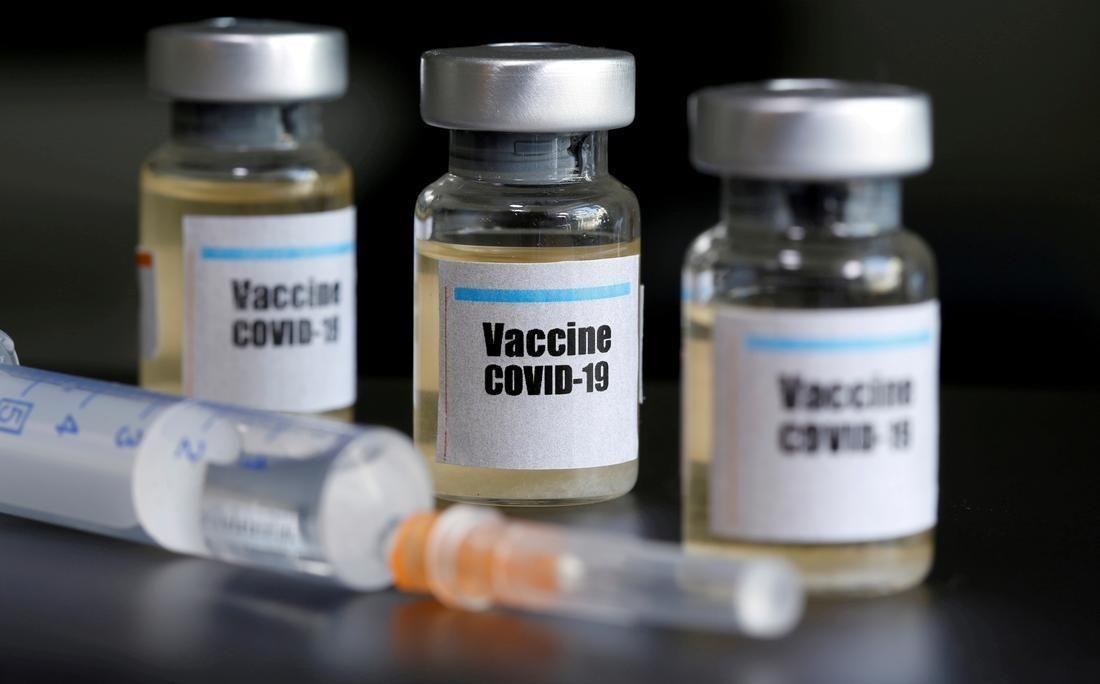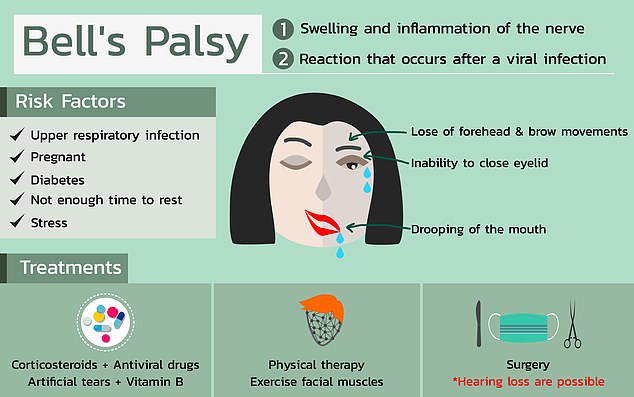Four trial volunteers who got Pfizer’s COVID-19 vaccine developed Bell’s palsy
According to the Daily Mail, four people who got Pfizer‘s coronavirus vaccine in the firm’s trial developed Bell’s palsy, a form of temporary facial paralysis, according to U.S. regulators’ report on the shot.
Food and Drug Administration (FDA) regulators said there wasn’t any clear way that the vaccine caused Bell’s palsy, but warned that doctors should watch for the alarming side effect and Pfizer should continue to keep tab on how many people it strikes.
- FDA scientists ruled the side effect was not likely caused by the shot, but said they would likely recommend that Pfizer closely monitor recipients for palsy
- Bell’s palsy can happen to anyone at any time, and its cause is unknown, though viral respiratory infections are considered a risk factor
- Only one inactivated inactivated flu shot was found to cause the serious side effect in 2001 and was quickly taken off the market

This isn’t the first time it’s been linked to vaccines, but scientists have ultimately ruled that shots did not trigger Bell’s in all but one case – a Swiss flu vaccine that was sold during the 2001-2002 flu season there, then promptly taken off the market.

According to the Mayo Clinic, the symptoms of Bell’s palsy include sudden weakness in your facial muscles. In most cases, the weakness is temporary and significantly improves over weeks. The weakness makes half of your face appear to droop. Your smile is one-sided, and your eye on that side resists closing.
Bell’s palsy, also known as acute peripheral facial palsy of unknown cause, can occur at any age. The exact cause is unknown. It’s believed to be the result of swelling and inflammation of the nerve that controls the muscles on one side of your face. Or it might be a reaction that occurs after a viral infection.
For most people, Bell’s palsy is temporary. Symptoms usually start to improve within a few weeks, with complete recovery in about six months. A small number of people continue to have some Bell’s palsy symptoms for life. Rarely, Bell’s palsy can recur.
- Rapid onset of mild weakness to total paralysis on one side of your face – occurring within hours to days
- Facial droop and difficulty making facial expressions, such as closing your eye or smiling
- Drooling
- Pain around the jaw or in or behind your ear on the affected side
- Increased sensitivity to sound on the affected side
- Headache
- A loss of taste
- Changes in the amount of tears and saliva you produce
Among the four people who developed Bell’s palsy after taking the vaccine during the Trial, one saw facial paralysis or weakness within three days after they received the shot.
But the participant’s face returned to normal about three days after that.
A second person developed Bell’s palsy nine days after receiving the shot, and the others’ faces grew weak 37 and 48 days after vaccination, respectively.
